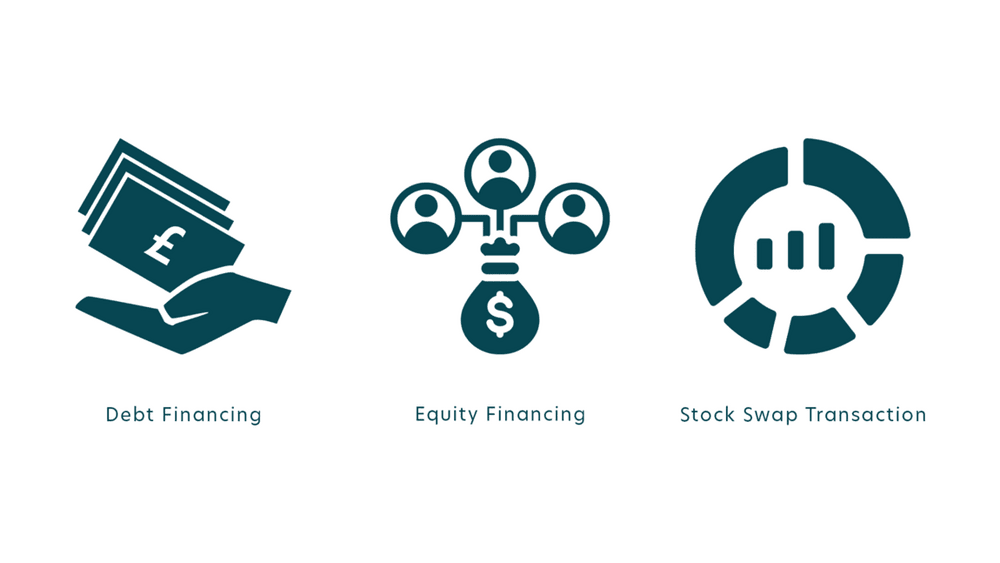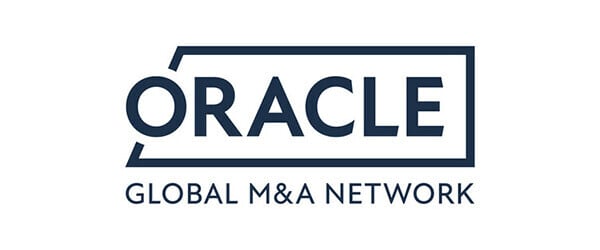
posted 21st February 2024
Acquisitions present an exciting opportunity to fuel fast growth for any business and securing the appropriate funds is one of the most important aspects. You need to consider all your financing options carefully, as the wrong financing structure can have a detrimental effect on your businesses’ financial health.
What is Business Acquisition Funding?
Business acquisition funding refers to the capital that is raised to purchase another business. Typically, a company will not have enough cash reserves to pay the full amount upfront and will rely on raising capital.
Funding for an acquisition doesn’t necessarily come from a single source. Businesses will often secure funds in many ways, which can add to the complexity of the deal. In the following sections we will explore some of the most common methods of funding an acquisition.
Types of Acquisition Funding
There are a plethora of ways in which you can fund an acquisition, which an accountant can help you explore thoroughly. However, there are three main ways you can finance an acquisition, they are: debt financing, equity financing and stock swaps.

- Debt Financing
Debt financing involves borrowing money from a lender. It is more commonly referred to as a business loan or business financing. In order to secure any kind of loan, you must have robust business plans and be able to prove that your company is financially secure enough to repay the loan.
The appeal of debt financing is that it does not involve selling shares or assets, which allows you to maintain control over both the acquiring and target businesses without external influence. Debt financing is often a cheaper form of financing as the interest fees are sometimes tax-deductible.
However, debt financing is not without risk. If the business fails to generate sufficient revenue to cover its repayments, it may face financial stress or potentially bankruptcy.
- Equity Financing
Equity financing is an alternative option towards raising funds for an acquisition. It involves issuing new shares in exchange for cash investment. This can be done through private investors, venture capitalists, initial public offering (IPO) or even investments from your family members.
The benefits of raising funds through selling equity is that investors understand that their return on investment is long-term and comes with inherent risks. Their return on investment comes from receiving dividends and you do not have to make any repayments.
However, selling equity dilutes ownership and will affect your authority when making business decisions. Equity financing can also take longer to secure, as it is harder to find an investor than it is a lender, due to the higher risks associated with investments over loans.
- Stock Swap Transaction
A stock swap is another equity-based transaction that involves “swapping” a stakeholder’s shares in the target company for shares in the acquiring or combined company. During a stock swap, both companies are meticulously valued to determine a fair swap ratio between the two shares. Usually, stock swaps are used in combination with loans or private investments.
Stock swaps can be particularly intriguing for the target company’s owners if they wish to remain involved with the organisation in some capacity. Allowing previous owners a stake in the new business aligns business goals and creates synergies between the two parties. This type of transaction also allows the acquiring company to preserve their cash reserves as well.
Much like equity funding, a stock swap reduces an owner's authority in an organisation. However, one of the largest risks associated with stock swaps is its valuation; if the acquiring company’s stock fluctuates it can impact the value of the deal for both parties. Stock swaps can also be a complex process as full shareholder approval from both sides is necessary.
Exploring your acquisition financing options
Before you start the acquisition process, you should have conducted an internal analysis of your finances. You will need to know exactly how much capital you have up front to fund the acquisition as well as an understanding of your company’s current cashflow. Having this information early will help identify the best financing option.
You will look to secure your financing for an acquisition after both companies have faced a valuation and due diligence has been conducted. It is best to seek guidance from an accountant that specialises in mergers and acquisitions.
GS Verde Corporate Finance work alongside our Law, Tax and Communications divisions to ensure comprehensive support throughout an acquisition. Together, they have advised on hundreds of successful business deals. You can learn more about how our multi-disciplined team can help you acquire a business here.








